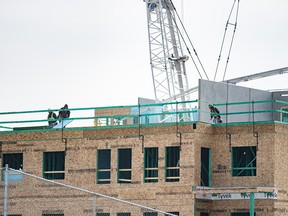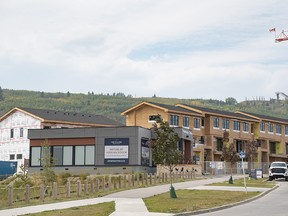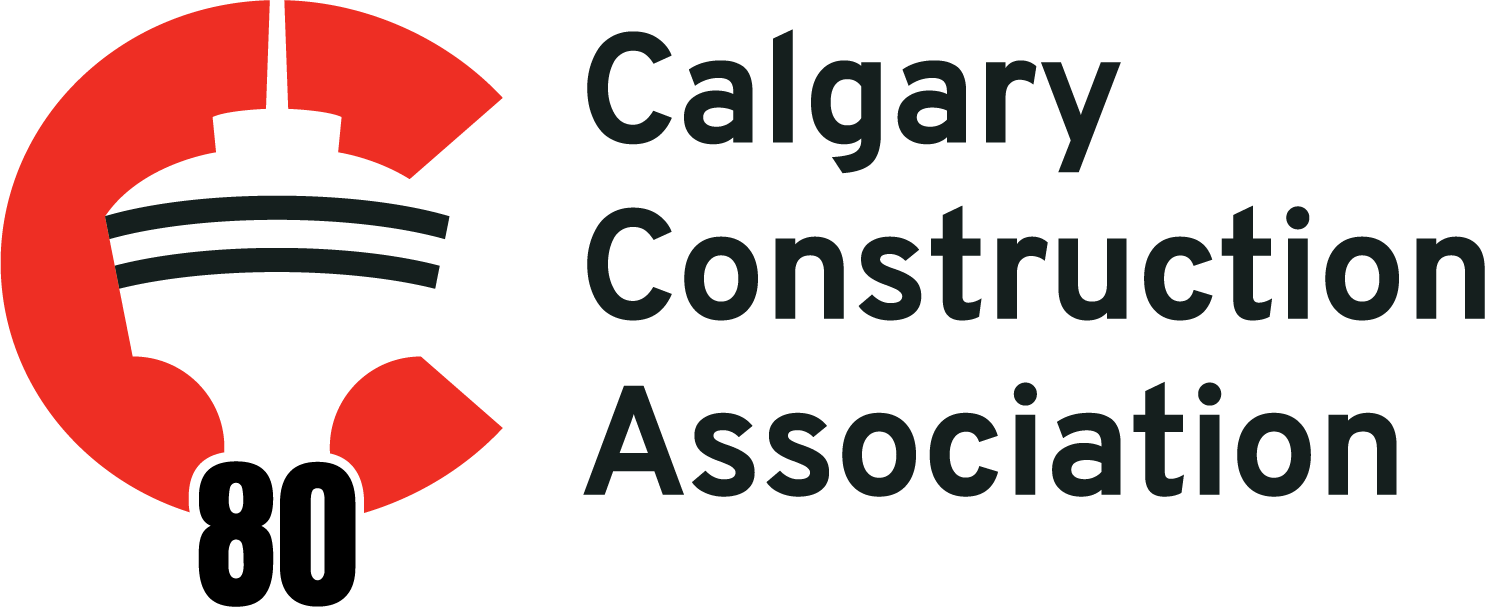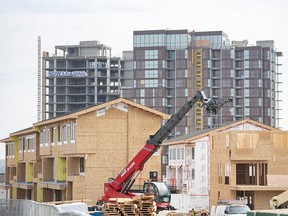But what happens next?
Council’s 12-3 vote to approve the new strategy on Saturday was heralded by city officials as “an important turning point” in addressing an ongoing housing crisis that has one in five Calgary households struggling to afford shelter.
But while there is now a seven-year road map in place to increase Calgary’s market and non-market housing supply, a City of Calgary employee says the hard work truly starts now to bring the strategy to fruition.
Tim Ward, the city’s manager of housing solutions, said the city can start implementing components of the strategy that do not require further budget or council approval, such as creating a support-for-tenants service.
“We’ve actually already implemented the first and last month’s rent program,” he told Postmedia on Monday. “There are other actions as well around land for Indigenous housing you’ll see move ahead quickly in the next few months here, and then research on housing for equity-deserving populations.”
Ward said aspects of the strategy with budgetary requirements will return to council in November, during 2024 budget deliberations.
Zoning changes would require public hearing
Any components that require land-use changes or bylaw amendments will have to include a public hearing.
This includes the divisive provision for blanket R-CG zoning across the city — an “upzoning” that will increase density by allowing for the construction of row houses and duplexes on land currently zoned for single-family homes.
The process of changing the base residential district to RC-G can take up to nine months, according to Ward.
“There’s a process of preparation, notification, public communication, public input, and then a public hearing of council and then a proposal to approve at council,” he said, noting the strategy’s full implementation is on a “much longer-term horizon.”
Ward said city administration will update the community development committee annually to gauge if the objectives outlined in the plan, such as building an additional 1,000 market homes and 3,000 non-market homes annually, are being reached.
Factors that could affect the strategy’s success include inflation, interest rates and the amount of support the city receives from higher levels of government, Ward said.
“Non-market housing in particular really relies on that partnership between all three levels of government,” he said.
‘I worry it will become moot’: Construction industry experiencing labour shortage
Frano Cavar, the governmental relations director of the Calgary Construction Association (CCA), called council’s approval of the housing strategy an “important first step,” but stressed that a potential roadblock the city will face in its implementation is an ongoing labour shortage in the construction sector.
Citing Statistics Canada’s Labour Force Survey from July, Cavar noted Calgary’s construction industry is in the midst of a labour shortage of 2,500 to 4,000 workers. He worries the shortage will hinder construction project timelines and add to the overall costs of new builds.
“What happens when you don’t have the workers to fill your needs?” he said. “Affordability tanks, costs increase, and ultimately it’s the consumer that has to pay the price.”
Cavar, who was one of more than 160 Calgarians who presented to the community development committee during a two-day public hearing last week, said the CCA’s focus will be ensuring the labour shortage is on the minds of lawmakers.
“I think it’s important that the city acknowledges the (housing) problem and is willing to put action to see what it can do from a policy perspective,” he said. “I think policy is important, but without action on the labour supply issue, I worry it will become moot.”

‘There’s a desperation we’ve never seen before’
Inn From the Cold — a non-profit that supports families experiencing a housing crisis by providing emergency shelter, housing supports and other transitional programs — applauded Saturday’s decision.
Heather Morley, the charity’s executive director, said she was “elated and grateful” to learn council had approved the strategy.
“We’re on the front lines every day of families experiencing homelessness and needing safe, affordable housing,” she said. “This is a critical issue for our organization, for the families we support and our sector.”
Elements of the strategy that will most positively affect Inn from the Cold, Morley added, are the creation of more non-market housing, increased subsidies and freeing up city-owned land for transitional housing.
While Inn from the Cold has been operating in Calgary for 25 years, Morley said demand for the charity’s services has increased significantly in the past few years. She said the non-profit received 180 calls for help last month from families who feel they have run out of other options.
“Our shelter is running at full capacity, our programs are oversubscribed,” she said. “There’s a desperation we’ve never seen before.”






